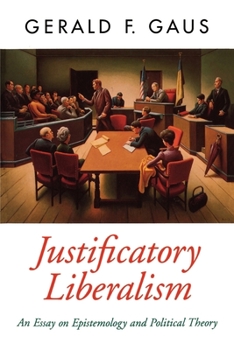Justificatory Liberalism: An Essay on Epistemology and Political Theory
Select Format
Select Condition 
Book Overview
Gerald Gaus draws on current work in epistemology and cognitive psychology to defend a modest version of cognitive relativism. Building on this theory of personal justification, he asks, "How do we justify moral and political principles to others?" Here, the "populist" proposal put forward by "political liberals"--that the assent of all reasonable citizens must be obtained--is considered and rejected. Because reasonable people often ignore excellent reasons, moral and political principles can be considered conclusively justified, even in the face of some reasonable dissent. Conclusive justification, however, is difficult to achieve, and Gaus acknowledges that most of our public justifications are inconclusive. He then addresses the question of how citizens can adjudicate their inconclusive public justifications. The rule of law, liberal democracy and limited judicial review are defended as elements of a publicly justified umpiring procedure.
Format:Paperback
Language:English
ISBN:0195094409
ISBN13:9780195094404
Release Date:March 1996
Publisher:Oxford University Press
Length:392 Pages
Weight:0.20 lbs.
Dimensions:1.1" x 6.1" x 9.0"
Customer Reviews
1 rating
A magnificent contribution to scholarship
Published by Thriftbooks.com User , 27 years ago
This work is an outstanding example of analytic philosophy and a model of clarity, subtlety, rigour, and artful reasoning. Of the tens of thousands of pages I have read in Political Theory, it is one of the most brilliant titles. An essential statement on the subject.





